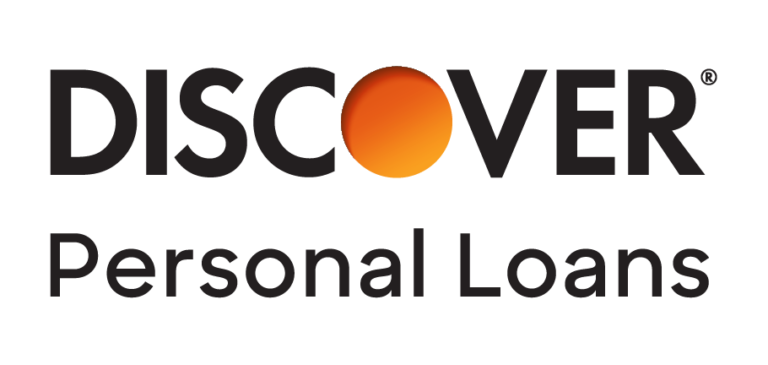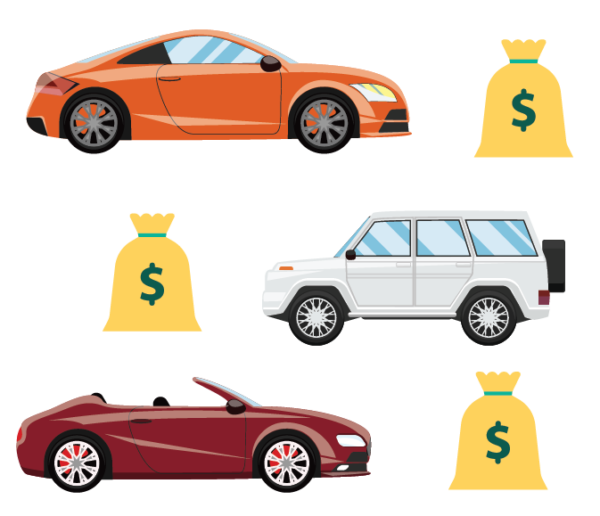Our goal is to give you the tools and confidence you need to improve your finances. Although we receive compensation from our partner lenders, whom we will always identify, all opinions are our own. Credible Operations, Inc. NMLS # 1681276, is referred to here as "Credible."
If you need to borrow money and you already own a vehicle, you might be able to take out a car title loan. However, while a car title loan might get you some quick cash, there are significant downsides to keep in mind.
Here’s what you should know about car title loans:
- What is a car title loan?
- Drawbacks of car title loans
- Personal loans vs. car title loans
- Personal loans with same- or next-day deposits
- Other alternatives to title loans
What is a car title loan?
A car title loan is a type of short-term, secured loan that typically doesn’t require a credit check. Some lenders don’t even require income verification.
To take out a title loan, you’ll give the lender the title of your car (or motorcycle), and your vehicle will serve as collateral.
In return, the lender will give you a small loan that you’ll have to repay in a short amount of time — often within 30 days.
Drawbacks of car title loans
While car title loans could get you access to some fast cash, they also come with significant drawbacks. Here are a few to keep in mind:
- They’re extremely expensive. Car title loans can have APRs of 300% or higher — far more than you’d pay with other forms of credit.
- They come with very short terms. Car title loans typically have to be repaid quickly. — within 30 days in most cases. If you can’t repay the loan in time, most lenders will let you roll the debt over into a new loan. But rolling the loan over means paying more fees and interest on top of the amount you initially borrowed — digging you deeper into debt.
- You could lose your car. Your vehicle secures a car title loan. If you fall behind on your payments, the lender could seize your vehicle and sell it — meaning you’ll lose your primary mode of transportation.
Learn More: Short-Term Loans
Personal loans vs. car title loans
If you need money quickly, a personal loan could be a smart alternative to a car title loan.
Unlike car title loans, most personal loans are unsecured, so there’s no risk of losing your car. Personal loans also typically have much lower interest rates and fees than car title loans.
Plus, you could also have up to seven years to repay a personal loan, depending on the lender — making your monthly payments more manageable.
If you’re struggling to qualify for a personal loan, another option is applying for personal loans with a cosigner.
Not all lenders allow cosigners on personal loans, but some do. Having a creditworthy cosigner could increase your chances of getting approved. Even if you don’t need a cosigner to qualify, having one could get you a lower interest rate than you’d get on your own.
If you’re considering a personal loan vs. a car title loan, here are several points to keep in mind:
| Loan amounts | $600 to $100,000 (with Credible partner lenders) | Typically $100 to $5,500 |
| Loan terms | 1 to 7 years (depending on the lender) | Usually 30 days |
| Interest rates | Varies | Average 300% APR |
| Fees | Might charge origination or other fees (depending on the lender) | Might come with:
|
| Collateral required? | Typically no | Yes |
| Credit check required? | Yes | No |
| Time to fund | Typically within 7 days | Immediate |
| Where to get |
| Title loan lenders |
No matter which type of loan you choose, it’s important to consider how much the loan will cost you over time. You can estimate how much you’ll pay for a loan using our personal loan calculator below.
Enter your loan information to calculate how much you could pay
With a $ loan, you will pay $ monthly and a total of $ in interest over the life of your loan. You will pay a total of $ over the life of the loan.
Need a personal loan?
Compare rates without affecting your credit score. 100% free!
Checking rates won’t affect your credit score.
Check Out: Secured Personal Loans
Personal loans with same- or next-day deposits
One of the major attractions of car title loans is that you can often get the money right away.
However, there are also several personal loan lenders that offer same- or next-day funding — meaning you could still get the money you need quickly.
Here are Credible’s partner lenders that offer same-day loans or next-day loans:
| Lender | Fixed rates | Loan amounts | Min. credit score | Time to fund | Cosigners allowed |
|---|---|---|---|---|---|
 | 9.95% - 35.99% APR | $2,000 to $35,000** | 550 | As soon as the next business day (if approved by 4:30 p.m. CT on a weekday) | No |
|
|||||
 | 11.79% - 20.84% APR | $10,000 to $50,000 | 730 | Next business day | No |
|
|||||
 | 6.99% - 35.99% APR | $2,000 to $50,000 | 600 | As soon as 1 to 3 business days after successful verification | No |
|
|||||
 | 7.99% - 24.99% APR | $2,500 to $35,000 | 660 | As soon as the next business day after acceptance | No |
|
|||||
 | 7.99% - 35.99% APR | $2,000 to $36,500 | 660 | As soon as the next business day | No |
|
|||||
 | 6.49% - 25.29% APR with autopay | $5,000 to $100,000 | 700 | As soon as the same business day | Yes |
|
|||||
 | 18.0% - 35.99% APR | $1,500 to $20,000 | 540 | As soon as 1 to 2 business days after approval | Yes |
|
|||||
 | 8.99% - 35.99% APR | $2,000 to $50,000 | 640 | As soon as one business day | No |
|
|||||
 | 11.69% - 35.99% APR7 | $1,000 to $20,000 | 560 | Within one day, once approved9 | No |
|
|||||
 | 7.74% - 35.99% APR | $1,000 to $50,000 | 600 | Within a day of clearing necessary verifications | No |
|
|||||
 | 6.6% - 35.99% APR4 | $1,000 to $50,0005 | 620 | As soon as 1 - 3 business days6 | No |
|
|||||
Other alternatives to title loans
There are also other alternatives to car title loans available. Here are a few options to consider:
- Credit card cash advance: If you already have a credit card, you might be able to get a credit card cash advance from an ATM or your bank. However, keep in mind that credit card cash advances generally charge higher interest rates than what you pay on purchases. You’ll likely also have to pay a fee for the advance.
- Payday or pawn shop loans: Like car title loans, payday loans and pawn shop loans also typically offer immediate loan funding. But this convenience comes at a high price and should be a last resort. These types of loans can charge 300% to 500% APR and come with very short repayment terms.
- Negotiate with your creditors: If you can’t afford your bills, you might be able to negotiate with your creditors. For example, a utility or credit card company might be willing to extend your due date, temporarily reduce your payments, or put you on a payment plan. It doesn’t hurt to ask to see what your options might be.
- Get a loan from friends or family: While this isn’t an option for everyone, asking your friends or family for a loan could help you cover an emergency expense without paying sky-high interest rates and fees. If you decide to ask for a loan, sit down with your family or friends and come up with a repayment plan and agreement that outlines the loan terms. Be sure to stick to the loan terms so your relationships aren’t strained down the road.
If you decide to take out a personal loan, be sure to consider as many lenders as possible to find the right loan for you.
Credible makes this easy — you can compare your prequalified rates from multiple lenders in two minutes.
Ready to find your personal loan?
Credible makes it easy to find the right loan for you.
Find My Rate
Checking rates won’t affect your credit
About Rates and Terms: Rates for personal loans provided by lenders on the Credible platform range between 5.20%-35.99% APR with terms from 12 to 144 months. Rates presented include lender discounts for enrolling in autopay and loyalty programs, where applicable. Actual rates may be different from the rates advertised and/or shown and will be based on the lender’s eligibility criteria, which include factors such as credit score, loan amount, loan term, credit usage and history, and vary based on loan purpose. The lowest rates available typically require excellent credit, and for some lenders, may be reserved for specific loan purposes and/or shorter loan terms. The origination fee charged by the lenders on our platform ranges from 0% to 12%. Each lender has their own qualification criteria with respect to their autopay and loyalty discounts (e.g., some lenders require the borrower to elect autopay prior to loan funding in order to qualify for the autopay discount). All rates are determined by the lender and must be agreed upon between the borrower and the borrower’s chosen lender. For a loan of $10,000 with a three year repayment period, an interest rate of 7.99%, a $350 origination fee and an APR of 11.51%, the borrower will receive $9,650 at the time of loan funding and will make 36 monthly payments of $313.32. Assuming all on-time payments, and full performance of all terms and conditions of the loan contract and any discount programs enrolled in included in the APR/interest rate throughout the life of the loan, the borrower will pay a total of $11,279.43. As of October 9, 2023, none of the personal loan lenders on our platform require a down payment nor do they charge any prepayment penalties.






